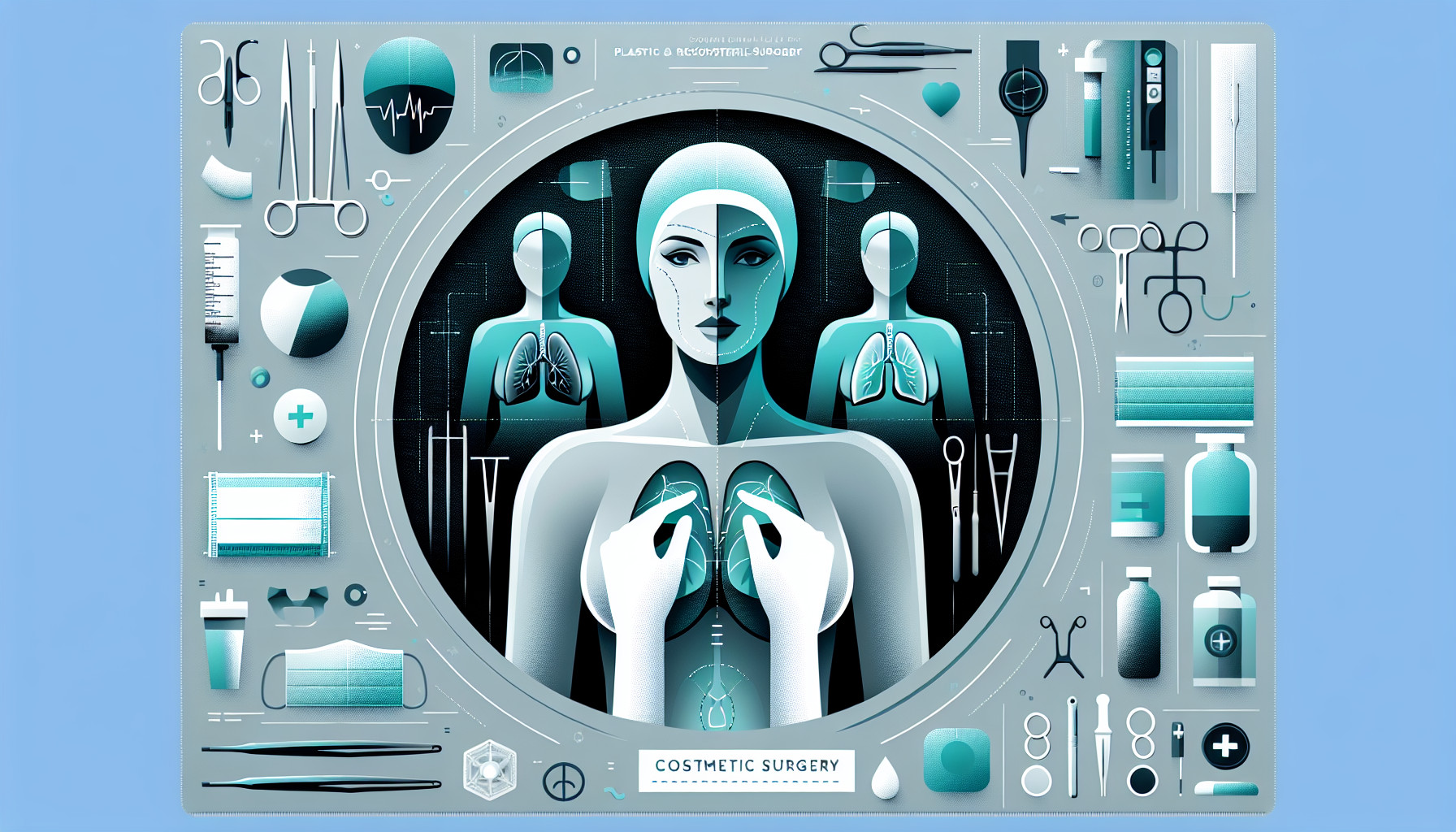Our Summary
This research paper investigates the relationship between cosmetic surgery and self-esteem in South Korea, where the number of people getting cosmetic surgery has skyrocketed due to advances in medical technology and the influence of mass media and social networks.
The researchers analyzed 16 studies on the subject, which included both men and women, and found that self-esteem was linked to six main factors: the intention to manage appearance, the intention to get cosmetic surgery, societal attitudes, satisfaction with one’s body, body mass index (BMI), and stress levels.
The study found that societal attitudes, BMI, and stress had a relatively small impact on self-esteem, while the intention to manage appearance, the intention to get cosmetic surgery, and satisfaction with one’s body had a moderate impact.
In simpler terms, how people view their own body and their desire to change their appearance through surgery can significantly affect how they feel about themselves.
The results of this study could help in developing strategies to lessen the negative effects of the growing cosmetic surgery industry. It could also provide insights into the mindset of people who want to undergo cosmetic surgery, which could lead to better medical outcomes.
FAQs
- What are the six main factors that the research found to be linked to self-esteem in relation to cosmetic surgery?
- How does the intention to manage appearance and to get cosmetic surgery impact self-esteem according to the study?
- How could the results of this research be used in the cosmetic surgery industry?
Doctor’s Tip
One helpful tip a doctor might tell a patient considering cosmetic surgery is to have realistic expectations. It’s important for patients to understand that cosmetic surgery can enhance their appearance, but it may not completely change their self-esteem or overall happiness. It’s also important for patients to have a thorough consultation with their surgeon to discuss their goals, potential risks, and expected outcomes before making a decision. Additionally, focusing on overall health and well-being, such as maintaining a healthy lifestyle and practicing self-care, can also contribute to a positive self-image.
Suitable For
Overall, the types of patients who are typically recommended cosmetic surgery are those who have a strong desire to improve their appearance and self-esteem. This may include individuals who are dissatisfied with certain aspects of their body, such as their nose, breasts, or stomach, and believe that cosmetic surgery can help them achieve their desired look. Additionally, patients who have realistic expectations about the outcomes of cosmetic surgery and are in good physical and mental health are also good candidates for these procedures.
It is important for patients considering cosmetic surgery to thoroughly research their options, consult with a qualified and experienced surgeon, and carefully consider the potential risks and benefits of the procedure. Additionally, patients should have a clear understanding of their motivations for seeking cosmetic surgery and ensure that they are doing it for themselves rather than to please others or conform to societal standards of beauty.
Ultimately, cosmetic surgery can be a valuable tool for enhancing self-esteem and confidence in individuals who are unhappy with their appearance. However, it is important for patients to approach these procedures with caution and to prioritize their physical and emotional well-being throughout the process.
Timeline
Timeline:
Before cosmetic surgery:
- Patient becomes dissatisfied with a certain aspect of their appearance.
- Patient researches different cosmetic surgery options and consults with a plastic surgeon.
- Patient discusses their goals, expectations, and concerns with the surgeon.
- Patient undergoes a physical evaluation to determine if they are a suitable candidate for surgery.
- Patient schedules the surgery and makes necessary preparations, such as arranging for time off work and organizing post-operative care.
- Patient may experience anxiety and nervousness leading up to the surgery date.
After cosmetic surgery:
- Patient undergoes the cosmetic surgery procedure.
- Patient experiences post-operative pain, swelling, bruising, and discomfort.
- Patient follows the surgeon’s post-operative instructions, such as taking prescribed medications, attending follow-up appointments, and avoiding certain activities.
- Patient sees gradual improvement in their appearance as they heal and the swelling subsides.
- Patient may experience a boost in self-esteem and confidence as they see the desired changes in their appearance.
- Patient may also face challenges such as managing expectations, dealing with potential complications, and adjusting to their new appearance.
- Patient continues to follow up with the surgeon for monitoring and support as needed.
What to Ask Your Doctor
Some questions a patient should ask their doctor about cosmetic surgery include:
- What are the potential risks and complications associated with the specific cosmetic procedure I am considering?
- How many times have you performed this specific procedure, and what is your success rate?
- What are the expected results of the procedure, and what is the recovery process like?
- Are there any alternative treatments or procedures that could achieve similar results?
- What are the costs involved, and will my insurance cover any part of the procedure?
- Can you provide before and after photos of previous patients who have undergone the same procedure?
- What are the qualifications and credentials of the medical team who will be involved in my surgery?
- How long will the results of the procedure last, and will I need additional treatments in the future?
- Can you provide references or testimonials from previous patients who have undergone similar procedures?
- What post-operative care and follow-up appointments will be necessary for optimal results?
Reference
Authors: Yoon S, Kim YA. Journal: Aesthetic Plast Surg. 2020 Feb;44(1):229-238. doi: 10.1007/s00266-019-01515-1. Epub 2019 Oct 21. PMID: 31637500
